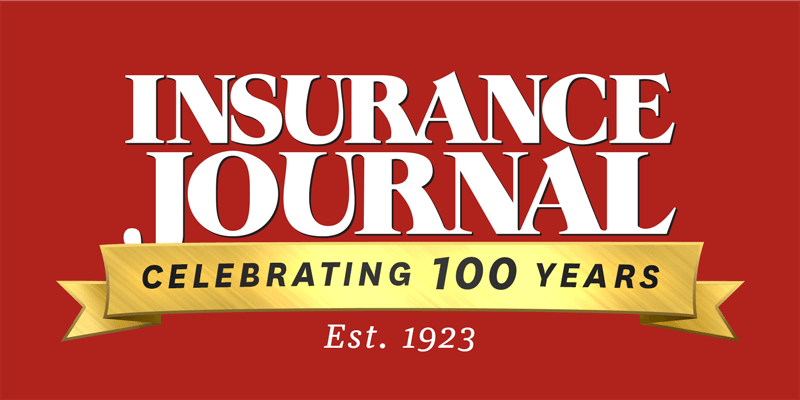If you’re shopping for insurance online, with apologies to Bob Barker and Drew Carey, the price isn’t right. That is, shopping solely on price for any product or service that isn’t truly a commodity is the wrong approach, and insurance isn’t a commodity.
Yes, there are industry standard forms and coverages but they are usually modified by perhaps dozens of endorsements, and many policies are proprietary to the insurer. Even where language in policies is identical, their interpretation can vary by insurer, as can the claims practices of said insurers.
I recently followed a LinkedIn thread that began, “Why do you quote your insurance with another agent? Because you want to make sure you’re not overpaying. That’s it.” The original post went on to mention the value of “target pricing” when agents are shopping an account. We know it’s done, but we do a lot of things we shouldn’t.
Consumers don’t understand that there’s more to insurance shopping than price comparisons. Sadly, that’s also true of far too many people within the insurance industry.
A few years ago, one very large personal lines carrier touted their new online homeowners insurance quoting system, which allowed consumers to get a quote in less than 15 minutes.
According to the company CEO, “We think [this service] will compel a lot of homeowners to take a few minutes to make sure they’re getting the right coverage at the right rate.” Read that sentence again. How does the consumer know they’re getting “the right coverage” at “the right price” when nothing in the quoting system really asks about their unique risks of loss?
A System Test
To test the system, I requested a quote on my own house. For the most part, I simply had to enter my address and the site could come up with a premium which, according to the website, was “based on public records, such as those from the county auditor.”
The quote included a replacement cost value of my home, on which the premium was largely based. According to the website, the value was derived from five data points based on public information. Unfortunately, for my home, four of these data points were wrong, including the square footage of my home being understated by about 1,000 square feet. Understating the living space of a home might be advantageous from the owner’s perspective when property taxes are due, but not at the time when insurance is being sought, as the consumer would learn at the time of a serious claim.
Most homeowners programs have many dozens of coverage options in the form of endorsements. I was asked about none of these. I live on a lake and have a boat dock that would likely cost about $40,000 to replace. Most homeowners policies cover “other structures” but only if they are on the residence premises. My dock is located on Army Corps of Engineers property.
My current insurer covers the dock by endorsement only. Would a consumer know this? Absolutely not. Would an internet-based automated system ask a question like this? Almost certainly not.
Does their homeowners policy cover potential liability claims arising from volunteer activities at the local school PTA? What about the 22 acres of “vacant” land I own 60 miles from my house. What about the $20,000 worth of bonsai trees in my greenhouse? Does their policy cover my paid activities as an umpire of youth baseball games? What about my classic rock band, The Spyders? Is an umbrella policy something I might need? Or might I need something more that this carrier never addresses because they sell only one or two types of policies?
While I invested less than 15 minutes in this process, hopefully it’s obvious that this time was completely wasted. No substantive information was requested or provided that would justify this as a viable means of buying insurance. But, as an industry, we’ve convinced consumers in our advertising that price is pretty much the only important consideration they need to make in the purchasing decision.
Sales pitches like “You get the SAME COVERAGE, often for less” and “SAME COVERAGE, better value” can lead to bankruptcy.
Sell Coverage, not Price
One venture capitalist, supporting his decision to invest in a new insurtech startup that was going to revolutionize the insurance buying “customer experience” said, “In a world where we can summon a car, or our favorite Mexican restaurant’s veggie burrito, at the touch of a button; shouldn’t we be able to get insurance cover for our homes by just providing our address?”
As illustrated in this article, just providing an address is insufficient to insure a home, especially considering that homeowners policies provide more than just property coverage.
Worse, this person clearly doesn’t understand the difference in the purchasing decisions between an insurance policy and a burrito.
Perhaps we can excuse this ignorance in someone outside of the industry, but not this statement from a top executive at one of the largest insurers in the country: “If people can buy paper towels on the internet, why not insurance?”
Making an uninformed decision about a burrito or a paper towel product is quite a bit different from entering into a complex legal contract where an uninformed decision may lead to financial ruin because the consumer did not exercise due diligence in protecting assets and income.
Tim Wahl is an agent in Missouri who I’ve mentioned in this column before.
Tim sells on coverage, not price. At least weekly, he is approached by a business owner wanting to know if Tim can save him money on his insurance. More often than not, Tim lands the account at a premium higher than the customer is already paying. The reason is, he compares his current coverage with the prospect’s actual exposures to loss and explains why he needs additional coverage, often for very little additional premium.
Do your prospects and customers understand that it is foolhardy to price-shop insurance? Does your staff understand this and can they explain why to prospects and customers? As marketing guru Seth Godin says, “Low price is the last refuge of the marketer who doesn’t care enough to build something worth paying for.”
Was this article valuable?
Here are more articles you may enjoy.



 2023 to Test Recent Growth in Private Flood Insurance Market
2023 to Test Recent Growth in Private Flood Insurance Market  Chubb Loses Bid to Enforce D&O Coverage Exclusions in Opioid-Related Case
Chubb Loses Bid to Enforce D&O Coverage Exclusions in Opioid-Related Case  Shot-at FedEx Driver, Now on Workers’ Comp, Has Been Fired, Attorney Says
Shot-at FedEx Driver, Now on Workers’ Comp, Has Been Fired, Attorney Says  Early Estimates Put Idalia’s Insured Losses at $3-9 Billion for Florida
Early Estimates Put Idalia’s Insured Losses at $3-9 Billion for Florida 



